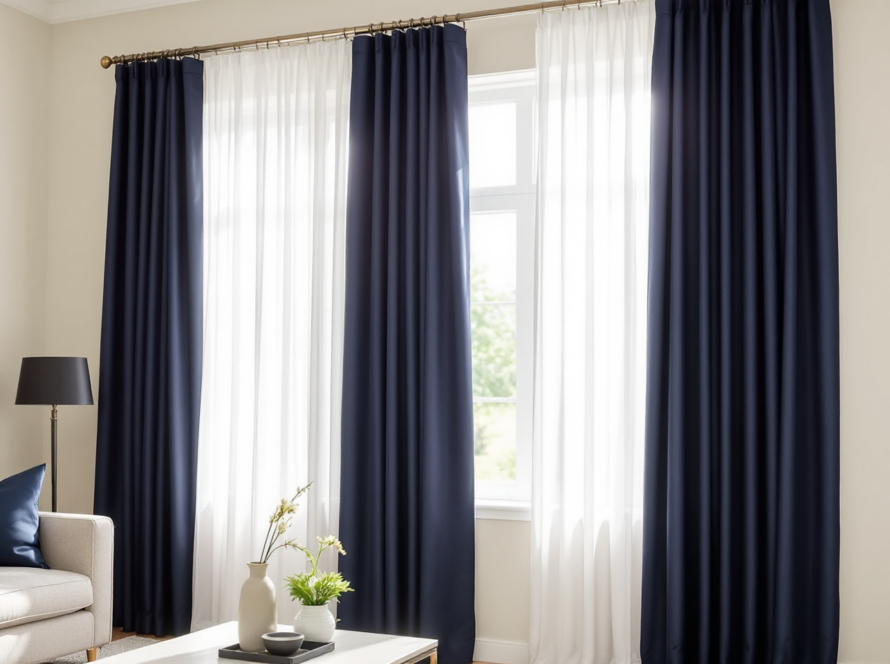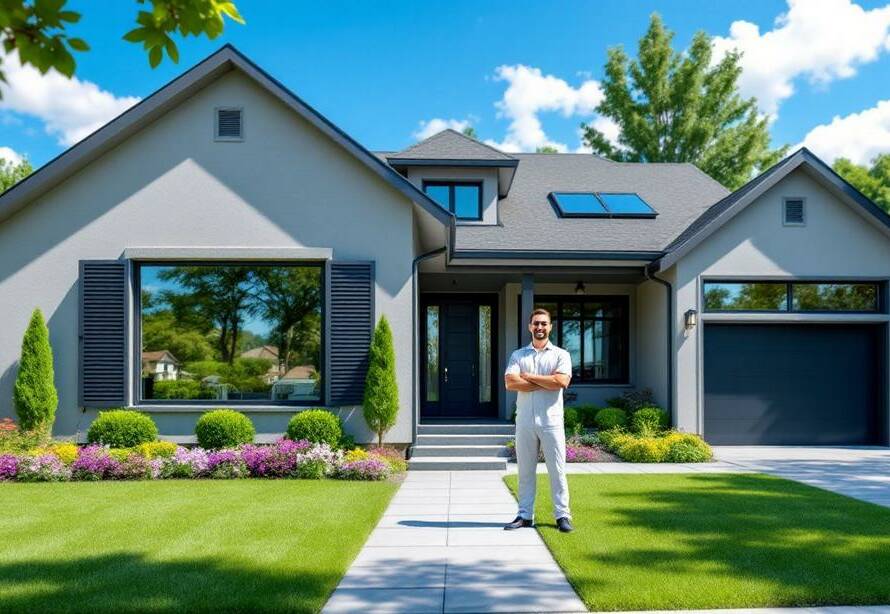Living by the coast has serious perks—breathtaking views, salty breezes, and that fresh ocean air. But it also brings some serious challenges to your home’s structure, especially your windows. Coastal climates are tough: relentless humidity, corrosive salt air, and the looming threat of hurricanes.
Your windows need to be more than just pretty—they need to be storm-tough, rust-resistant, and energy-efficient. This guide breaks down the best window choices for coastal homes, giving you the facts without the fluff so you can make a confident decision that protects your investment.
TLDR – Quick Guide
- Best Frame Material: Vinyl and fiberglass (low maintenance, corrosion-resistant).
- Best Glass Type: Impact-resistant laminated glass with Low-E coatings.
- Key Certifications: Look for products rated by the Miami-Dade County and with DP (Design Pressure) ratings.
- Energy Efficiency: Choose windows with ENERGY STAR ratings and Argon gas fills.
- Best Brands: Andersen, Pella, and Marvin offer lines built specifically for coastal resilience.
Implementation Tactics: Window Choices for Coastal Homes
1. Frame Materials That Fight Salt and Humidity
Metal frames like aluminum may seem sturdy, but they’re highly susceptible to salt corrosion. Here are smarter options:
- Vinyl: Affordable, maintenance-free, and doesn’t corrode. Brands like Simonton and Milgard excel here.
- Fiberglass: More expensive but even more durable, resistant to swelling and contracting in humid environments. Check out Marvin Elevate.
Avoid wood unless it’s clad with vinyl or aluminum to protect it from moisture.
2. Glass That Stands Up to Storms
If you live in a hurricane zone, your glass needs more than strength—it needs smarts.
- Impact-Resistant Glass: Laminated glass holds together under impact, keeping debris out and your interior safe.
- Tempered Glass: Shatters into blunt pieces (better for safety but not storm-rated).
- Low-E Coatings: Reflect UV rays and regulate indoor temps—critical in sunny, humid areas.
- Double or Triple Pane: For insulation and noise reduction.
Look for DP ratings over 50 for hurricane zones and ensure the window meets ASTM E1886 and E1996 impact standards.
3. Window Styles That Work
Certain styles are naturally better suited for coastal performance:
- Casement Windows: Sealed tight against wind and rain, with a crank handle for easy use in stormy conditions.
- Awning Windows: Open outward from the top—perfect for ventilation without letting rain in.
- Fixed/Picture Windows: No moving parts = fewer weak points. Great for coastal views.
- Double-Hung: Classic look but requires reinforced locks and seals for coastal use.
4. Energy Efficiency Matters Too
Humidity and heat can wreck your AC bill if your windows don’t pull their weight. Here’s what to look for:
- ENERGY STAR Certified: Ensures compliance with national efficiency standards.
- Argon/Krypton Gas Fills: Improve insulation between panes.
- Warm Edge Spacers: Reduce condensation and thermal transfer.
5. Trusted Brands for Coastal Durability
- Andersen A-Series: Rated for hurricane zones and designed to withstand salty air.
- Pella Hurricane Shield Series: Designed specifically for wind zones with enhanced security.
- Marvin Coastal: High-end performance with impact-resistant glass and corrosion-resistant hardware.
Key Takeaways
- Choose vinyl or fiberglass window frames for their salt and humidity resistance.
- Prioritize impact-resistant laminated glass with Low-E coatings for protection and energy savings.
- Casement, awning, and fixed windows are ideal styles for coastal weather conditions.
- Always check for DP ratings, ENERGY STAR certifications, and brand reliability.
- Investing in the right window can mean fewer replacements, lower energy bills, and greater storm security.
FAQs
What window frame material is best for salty air?
Vinyl and fiberglass frames are the best options for salty air because they resist corrosion and require very little maintenance compared to aluminum or wood.
Are hurricane-proof windows worth the investment?
Absolutely. Hurricane-impact windows offer safety, reduce noise, improve energy efficiency, and may even lower your insurance premiums in high-risk areas.
Can wood windows be used in coastal homes?
Wood is generally a poor choice unless it’s properly clad with aluminum or vinyl. Otherwise, it absorbs moisture and is prone to rotting and warping.
How do I know if a window is rated for hurricanes?
Look for windows with impact ratings from Miami-Dade County or that meet ASTM E1886/E1996 standards. Design Pressure (DP) ratings over 50 are a good benchmark for coastal zones.
What maintenance is required for coastal windows?
Regularly rinse off salt buildup, especially on hardware. Lubricate locks and hinges twice a year and inspect seals to prevent leaks.


